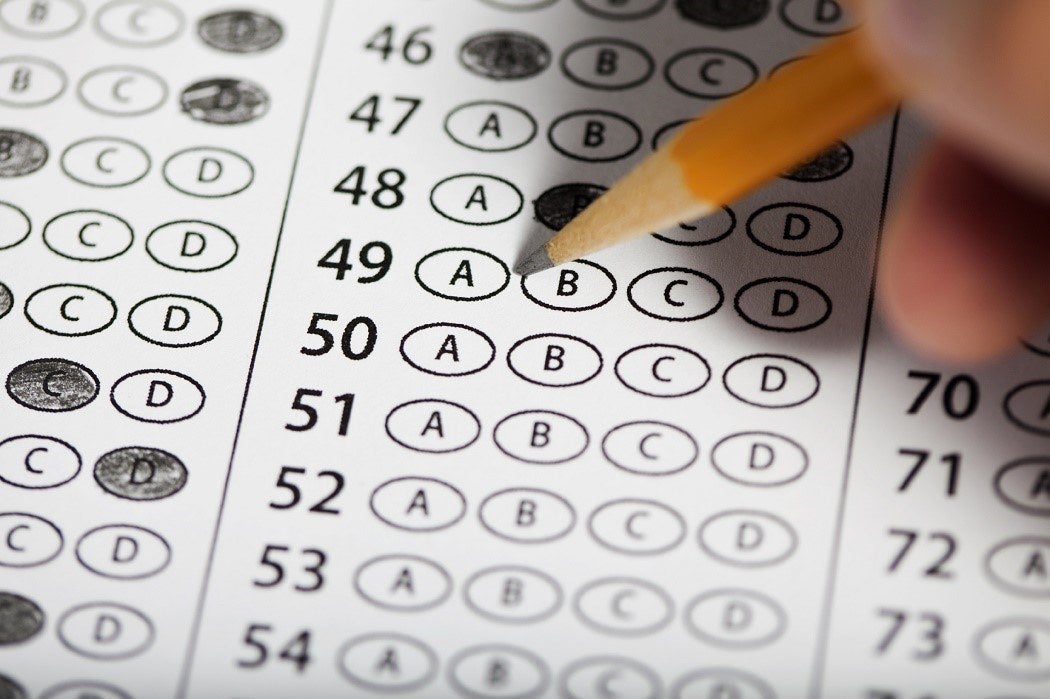Standardized Testing. An inescapable component of public education. Whether regulated locally or nationally, most of us have been subjected to at least one standardized test during our academic journey. The purpose of these tests is to ensure accountability in schools and maintain standards for public education across the nation. In a perfect world, this concept would be great. If a school is doing its job right and educating its students, these tests should really be no problem. Meanwhile, this is not the case.
There are numerous factors that can impact a student’s test scores, regardless of their level of education. Firstly, the high stakes involved in these tests often lead to anxiety among students, which can ultimately hamper their performance.
There are a plethora of factors that can impact a student’s test scores, regardless of their level of education. First of all, the high stakes involved, often lead to anxiety among students, which can ultimately hamper their performance. Standardized tests carry an enormous amount of weight on students. This can lead to a psychological impact on them. If you were subject to these tests, think back to your first time taking one. Mine was probably in third grade when I had to take my first PSSA (Pennsylvania System of School Assessment). I remember when my teacher gathered our class together about a week before the test. She spoke to us in a serious tone, emphasizing how crucial this exam would be. She also informed us of the duration of the test. The room was filled with silence as we, the students, felt a pit in our stomachs.
In a 2005 study, teachers noticed increased levels of anxiety among their students when it came to testing time. They concluded, that “high-stakes testing causes damage to children’s self-esteem, overall moral, and love of learning.” The fact that the effects of these tests can be seen as early as third grade should be a warning sign that these tests are only harming its students.
Another issue with standardized testing is that it can lead to a narrowed curriculum, which fails to assess higher-level thinking skills. This is because the tests only focus on basic skills and recall, rather than more complex questions that require higher-order thinking. Unfortunately, this can lead to a reduction in the teaching of important subjects that are not being tested. To address this issue, many schools have started integrating science and social studies into more language arts and math, which are the areas that are most commonly tested. In fact, I noticed that my school required less credits required to graduate in the subject areas of social studies and science, compare to the credits required in math and english.
Yet, this was even more common among lower performing schools. In fact, “a study of California, Georgia, and Pennsylvania school districts found that teachers narrowed their curriculum and instruction to focus on tested topics and also increased their use of test-like problem styles and formats” (David).
I believe that standardized tests will continue to be a part of the education system. However, I want to highlight some of the benefits of these exams.
Firstly, they can be used to demonstrate a student’s academic progress over their academic years. For example, after taking the PSSAs, I received a grade report that showed my progress in graphs and diagrams.
Secondly, some argue that standardized tests provide an equal opportunity for students to prove their knowledge. For instance, the SAT is open to any student, regardless of their high school’s performance. This can be helpful for those who come from lower-performing schools.
In conclusion, standardized testing has its pros and cons, and it is up to individuals to form their own opinions. What are your thoughts on this matter?

https://www.forbes.com/sites/katecassada-1/2023/10/21/k-12-students-face-an-alphabet-soup-of-standardized-tests-what-purpose-do-they-serve/?sh=5df16033ee53
https://www.edutopia.org/article/psychological-toll-high-stakes-testing/#:~:text=Some%20young%20students%20experience%20%E2%80%9Canxiety,%2C%20and%20love%20of%20learning.%E2%80%9D
https://www.ascd.org/el/articles/high-stakes-testing-narrows-the-curriculum
Hi Carmen! I remember my first standardized test was in third grade. I took the state test for New York and HATED it. There has also been research into how the SAT was made to discriminate against black students and prove that they aren’t as smart as white students. I think that standardized testing is not a good strategy for proving student’s intelligence as students are under high pressure with unfamiliar testing conditions. I know in my experience that I have never performed as well in a standardized test as I do in the corresponding class. Good Job and Awesome Post!
Hi Carmen!! I went to a private school and we had standardized testing all the time and it was the worst for me. I have a variety of learning disabilities, so it made it quite difficult for me to do well. With standard “skills”. For someone with learning disabilities, I always felt at my worst after these tests. I felt so dumb compared to everyone near me. And it got worse when I got into high school. I am so happy you are talking about this subject. There are so many negative impacts it has had on this generation.